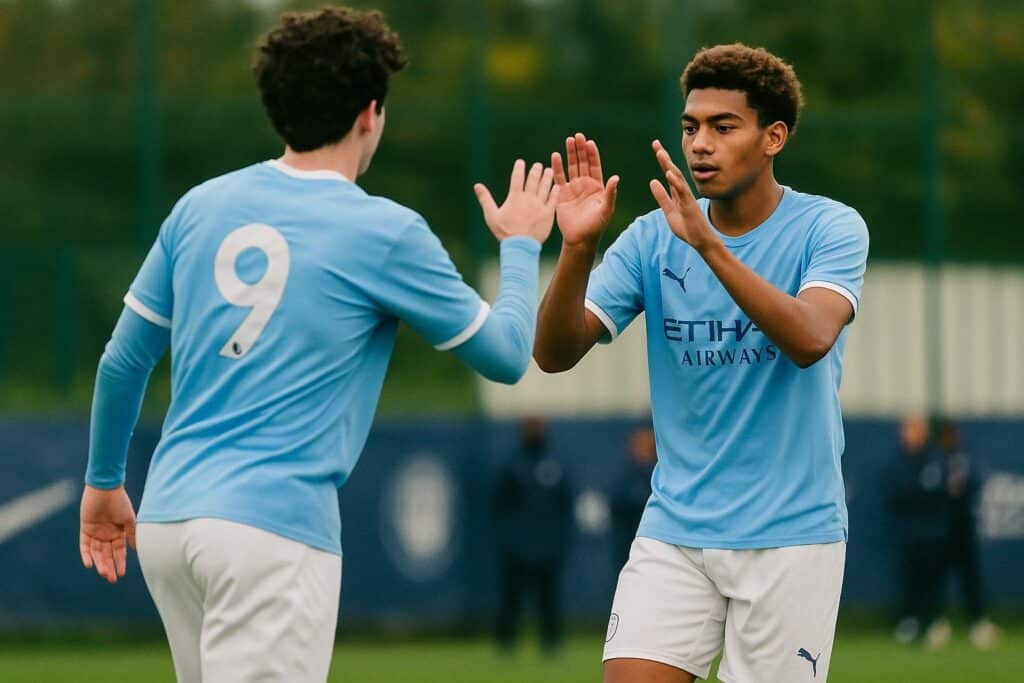Mixed Fortunes in the Balkans
The Balkan peninsula offered contrasting narratives for Congo-Brazzaville’s emissaries. In Albania, Partizani Tirana halted a worrying four-game slide by edging Flamurtari 1–0. Brought on in the 58th minute, Archange Bintsouka injected fresh energy on the left flank and was rewarded five minutes later when his team found the decisive goal. Club insiders noted that the Brazzaville-born winger “brought verticality and pressed intelligently”, traits that may catch the eye of national selector Paul Put ahead of November’s FIFA window.
A few hundred kilometres north-west, Rijeka were forced to settle for a 1–1 draw at Slaven Belupo during Croatia’s tenth match-day. Merveil Ndockyt, nursing a minor muscular complaint, was not in the travelling squad, yet technical staff insisted the precaution would leave him “fully fit within ten days”. Given the midfielder’s recent influence in Liga HNL—he leads Rijeka in progressive carries per ninety—his return could prove pivotal both for club ambitions and for Congo’s upcoming AFCON qualification campaign.
Premier League Learning Curve for the Samba Brothers
The North-West of England staged a family subplot rich in promise. Manchester City’s Under-18 side fell 2–3 at Liverpool, but the encounter underlined the offensive instincts of brothers Tyrone and Floyd Samba. Deployed together in central midfield, they displayed complementary profiles: Tyrone’s metronomic passing contrasted with Floyd’s penetrative runs, the latter culminating in a sixth goal of the season that briefly levelled proceedings. Academy director Jason Wilcox praised their “technical bravery in a hostile environment”, an attribute that could accelerate their progression towards Premier League 2 duties.
While senior international caps remain distant, the twins’ exposure to the high-tempo patterns of English youth football constitutes a strategic asset for Congo-Brazzaville. In recent years, federation officials have emphasised the need to broaden the talent pipeline through dual-national monitoring programmes. The Samblas—born in Lyon to Congolese parents—epitomise that policy’s early dividends.
A Quiet Afternoon in the Low Countries
Belgium, often described as the gateway through which Congolese players acclimatise to European football, produced a muted weekend. In the top flight, RAAL La Louvière were held 0–0 by Westerlo. Holding midfielder Alexis Beka Beka was kept with the reserve squad to regain minutes after an ankle sprain; the club’s medical bulletin forecasts a senior return before mid-October.
Lower down, third-tier side Namur squandered a 3–1 lead to draw 3–3 away to Schaerbeek-Evere. Veteran winger Yannick Loemba nevertheless embellished the score sheet with a deftly glanced header, his third goal of the campaign. Observers in the press tribune lauded the 33-year-old’s positional intelligence, noting that his leadership remains vital in a youthful dressing room chasing promotion.
Cypriot Clubs Extend Congolese Bench Depth
On the island of Cyprus, two Congolese forwards watched contrasting team triumphs from the sidelines. Pafos FC demolished Achnas 4–0 with Mons Bassouamina an unused substitute, while AEK Larnaca won 2–0 at Paralimni without fielding Jérémie Gnali. Coaching staff from both sides stressed rotation policies rather than form issues, highlighting the congested schedule created by simultaneous league and cup obligations.
From a national-team perspective, such bench roles still carry value. Playing in tactically disciplined Mediterranean leagues hones match preparedness, and internal competition can maintain hunger. As one federation scout based in Limassol argued, “Minutes are currency, but training under demanding staff is the bank guaranteeing long-term returns.”
Sofia Setback Balanced by Individual Progress
In Bulgaria, Lokomotiv Sofia fell 0–1 at home to CSKA 1948. Centre-back Ryan Bidounga missed the encounter, yet compatriot Messi Biatoumoussoka started and delivered a solid performance despite the defeat. Local analytics platform ScoutBG attributed eight defensive actions won to the 25-year-old, underlining his growing authority. With Lokomotiv hovering above the relegation zone, Biatoumoussoka’s consistency could shape their autumn trajectory.
Importantly, the Bulgarian First League’s rising U-25 quota synergises with Congo’s long-term selection philosophy of blending European-based youth with domestic stalwarts. Technical director Barthélémy Ngatsono recently reiterated that “minutes in competitive environments remain the primary criterion”, a statement that should reassure Biatoumoussoka as he vies for a maiden international call-up.
Strategic Takeaways for Brazzaville
Aggregating these vignettes, the weekend explained why Congo-Brazzaville increasingly scans a wide geographical horizon to assemble its squads. The dispersion—from Tirana to Liverpool—mirrors the modern football economy, where career pathways seldom follow a linear gradient. For national staff, real-time data on playing time, injury status and tactical roles now supplement the traditional eye test.
While no headline-grabbing brace emerged this weekend, incremental gains were visible: Bintsouka’s game-changing cameo, Floyd Samba’s goal against a storied academy, Loemba’s veteran poise and Biatoumoussoka’s defensive resilience. Each performance feeds into broader strategic imperatives: preserve depth on the flanks, nurture central creativity and solidify the back line.
Looking ahead, November’s international window will demand a balanced list blending experience and promise. If fitness trajectories hold, several names highlighted here could feature, contributing to the Republic of Congo’s ambition of returning to continental competitions with a renewed, globally seasoned cohort. Their European odysseys, mapped week after week, remain both a barometer of individual progress and a mirror reflecting the aspirations of a footballing nation that seeks to punch above its weight with quiet determination.

